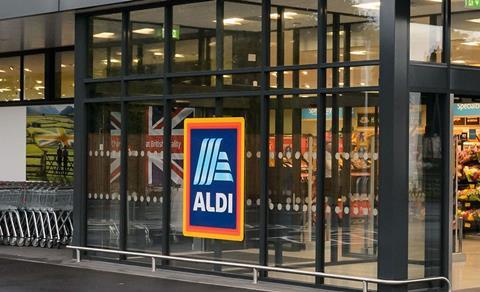Aldi boosts commitment to flower workers in Ethiopia through Fairtrade women’s empowerment programme

Aldi UK is partnering with the Fairtrade Foundation on the next stage of a £400,000 programme to empower women in the Ethiopian flower sector, with a view to tackling some of the systemic challenges they face.
Aldi is the second largest retailer of Fairtrade flowers in the UK and in 2022 the supermarket sourced 2.7 million Fairtrade bouquets, raising over £160,000 in Fairtrade Premium that year for workers to invest in community or business needs.
The new initiative, ‘Improved Workers’ Rights in Ethiopian Flowers’, running from 2022-2025, builds on previous efforts to improve working conditions and raise awareness of workers’ rights, gender and disability inclusion of workers on flower farms. The joint announcement coincides with Fairtrade Fortnight, ensuring that more people across the UK learn more about Fairtrade flowers.
Largely, young women migrant workers on Ethiopian flower plantations face poor job security and low wages. Trade unions in the Ethiopian flower sector have limited reach and impact, despite the industry employing more than 70 per cent women.
Fairtrade and Aldi’s programme will deliver a variety of interventions, including enhancing representation of women in management structures and on worker committees and improving dispute resolution and grievance mechanisms. It also aims to improve worker health and safety, create a decent working environment, and increase women’s financial literacy through savings schemes and better access to finance.
Aldi and Fairtrade partnered initially on Phase 1 of the programme, which ran from 2018-2022 and supported 15,000 women across six flower farms in Ethiopia. Impacts included vastly improved grievance mechanisms as well as greater transparency from management in relation to conflict resolution processes. Gender committee members received training and an increased number of people with disabilities were employed on farms through the provision of reasonable adjustments. Workers also reported better knowledge of occupational health and safety and health problems caused by working on flower farms, while household incomes increased by 36 per cent and more women took up leadership positions.
Meseret Teshome, a supervisor at Herburg Roses described how the programme made a difference to her: “It helped me build my self-confidence, and to gain knowledge on gender equality and empowerment. I have learned to be independent and developed the thinking that, women can do anything. Besides changing myself, it also helped me mentoring others in the flower farm. I am also training people around me in my community and I believe this will have a significant impact.”
Phase 2 will reach 13,000 more women, supporting workers to raise their voices through effective trade unions, improving collective bargaining and promoting sustainable livelihoods. It will focus on promoting sector-wide, as opposed to the farm-level, representation.
Kerrina Thorogood, director of partnerships at the Fairtrade Foundation, said: “Fairtrade is delighted to be partnering with Aldi UK to further deepen our impact where it is most needed on Ethiopian flower farms. Working with Aldi and the Ministry of Foreign Affairs of Finland, we intend to promote sustainable livelihoods and decent working conditions for flower farm workers and their communities. This continued commitment by our partners will ensure that workers are able to advocate for their rights as well as inclusion of women, youth and vulnerable persons. By buying Fairtrade products from Aldi, such as flowers from Ethiopia, Aldi customers can be confident that their purchase will have a positive and meaningful impact on workers in the supply chain.”
Liz Fox, director of corporate responsibility at Aldi UK, said: “It is essential to support the countries around the world where our products are produced in order to help address equality challenges and create fair and supportive working environments. We are focused on maintaining high standards throughout our supply chain and we are pleased to continue to partner with Fairtrade to both empower and protect women, as well as give them the tools and support they need to take on leadership roles on farms in their communities.”



